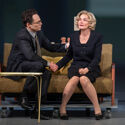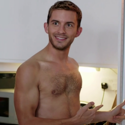 A comprehensive study conducted by the BBC explores praised shows like Doctor Who and Torchwood for presenting diverse representations of the gay community, but indicated there is still plenty of room for improvement at the network.
A comprehensive study conducted by the BBC explores praised shows like Doctor Who and Torchwood for presenting diverse representations of the gay community, but indicated there is still plenty of room for improvement at the network.
Since it receives its funding from the public, “it’s one of the BBC’s public purposes to reflect the diversity of UK life,” Tim Davie, CEO of BBC Worldwide said in a statement. “I’m proud to have led this work for three years, and this review underlines our commitment and sets a direction for the work to continue.”
The broadcasting corporation asked members of The Lesbian and Gay Foundation, the gay-rights group Stonewall and other advocacy organizations to conduct a full review on its portrayal of lesbians, gays and bisexuals. In addition, some 2,700 members of the British public were polled.
- Gay and bisexual men seem relatively happy with the TV they consume (across all channels, not just the BBC) – lesbian and bisexual women perhaps less so
- Both LGB men and women are more likely than heterosexual audiences to watch arts programming, and gay and bisexual men are also more likely to watch soap operas and continuing drama
- Experts believe there should be a careful mix of incidental, overt and landmark types of LGB portrayal, and that LGB representation should reflect the diversity of LGB people, and avoid stereotypes
- There is a call from the LGB experts who we interviewed for the BBC to be bolder and more creative in how it represents LGB people, and to lead the field in this area
- Intimacy in same-sex relationships can be difficult for uncomfortable heterosexual audiences, for some parents and even for heterosexual people who are more comfortable with portrayal of LGB people
-
One in five heterosexual men said they thought there were too many LGB people on BBC television, and more than one in ten said there were uncomfortable with the portrayal of gay, lesbian and bisexual people in the broadcast media.
- Role models play an important role for LGB audiences keen to see a greater range and diversity of on-air and on-screen LGB presenters, performers, journalists etc.
- There should be more out presenters in children’s television, “to familiarize audiences through incidental portrayal from an early age.”
Seriously, can you imagine this kind of discussion at CBS?
How about we take this to the next level?
Our newsletter is like a refreshing cocktail (or mocktail) of LGBTQ+ entertainment and pop culture, served up with a side of eye-candy.




















timelord89
The Doctor Who Christmas special this year, features an intergalactic interspecies lesbian couple living in Victorian England, I doubt that would totally fly in a family show in the USA without freaking out at least three different organizations for family values.
Callum
May Captain Jack Harkness (John Barrowman) live long and prosper! Years one and two were the best, Year three ventured out on strange limbs and also killed off Ianto Jones (Gareth David Lloyd ) which was a big mistake. Season four was influenced too much by Starz, who had their hand in the production. Since season four was filmed in the USA it was terrible and lacked the writing excellence and location excellence of the three previous seasons. The producers need to do a Dr. Who inspired “time warp” and bring back both Captain Jack (John Barrowman) and Ianto ( Gareth David-loyd) to run a simpler Torchwood project in Wales, nice individual semi-connected installments, much like the original Avengers with John Steed (Patrick Macnee) and Emma Peel (Diana Rigg).
rand503
I love the fact that so many straight men in Britain are uncomfortable with seeing gay men portrayed on tv. You know what? I”m uncomfortable seeing YOU portrayed on tv, so it’s about time you figure out what it’s like for us.
But don’t worry, dearie, you’ll get used to it. Especially after your cousin comes out and you’ll have to live the life you see on tv.
BritAus
^ LOL
Andy
I don’t see what the big fuss is about..
Let them be on air as much as any straight person.
If people are so uncomfortable with it they can turn off the tv or change channel problem solved.
My best friends are gay, my cousin is gay.
And to be honest Jack Harkness/Ianto Jones from torchwood was AWESOME!
The bottom line is that “I” don’t get bothered if the presenter is gay or not.
boring
Here’s a rad idea: turn off your television.
Sakkiko
As a straight woman I find this offensive.
…
“This” being other straight people complaining because of… what? 1% of people on the television being gay? Oh, wow, now that’s an AWFUL lot compared to the 99% being straight. Sometimes I am really ashamed of the straight community…
I actually came here because I’m wondering why so many members of the LGBTQ community like Doctor Who. I figure it might have something to do with quite some of the producers, writers, actors… and generally people involved in the making of Doctor Who being gay and therefore being able to respond to the needs of this community.
But is there something else? Something about the stories or the style of Doctor Who maybe?
If someone happens to come across this comment: I would really appreciate any answers you might be able to provide. Thanks a lot. 🙂